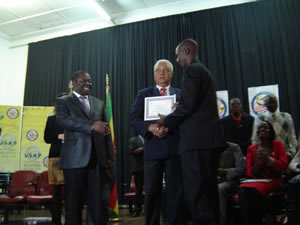Price adjustments for $31
Posted on July 5th, 2011 by Lenard Kamwendo. Filed in Economy, Uncategorized.Comments Off
Over the weekend I was in town going around hardware shops looking for price quotations for building materials. I was looking for plumbing material, which Chitungwiza Town Council failed to provide me. After visiting the Chitungwiza Town Council offices on several occasions asking them come and connect water and waste disposal pipes at my place, I was finally told to buy my own pipes and pay the connection fee.
So I went around several hardware shops asking for price quotations in town. The most surprising thing was that, of the three shops I visited they had already adjusted prices for all the products on shelves in anticipation of the pay increase which civil servants had been promised. The previous day I had checked prices for the material I wanted to buy so there I was arguing with the shop assistant over the prices. So I moved to the next shop and it was the same story. Since it a was a Saturday I had paid little attention to the news headlines in daily papers only to be reminded by the shop assistant that the story of civil servants pay increase was the headline of the day. This got me interested so I rushed to grab one of the daily papers and it was on the front page “Civil servants get salary increment”. The interest I had about the article quickly faded just a few lines into the story when I read that government’s pay increase will give a $31 rise in the basic salary of the lowest-earning employee.
The culture of adjusting prices and overcharging, which was heavily experienced during the Zimbabwe dollar era, is still part of some unscrupulous business people in this country. But this time I guess the timing to make a killing was wrong because its only $31.










